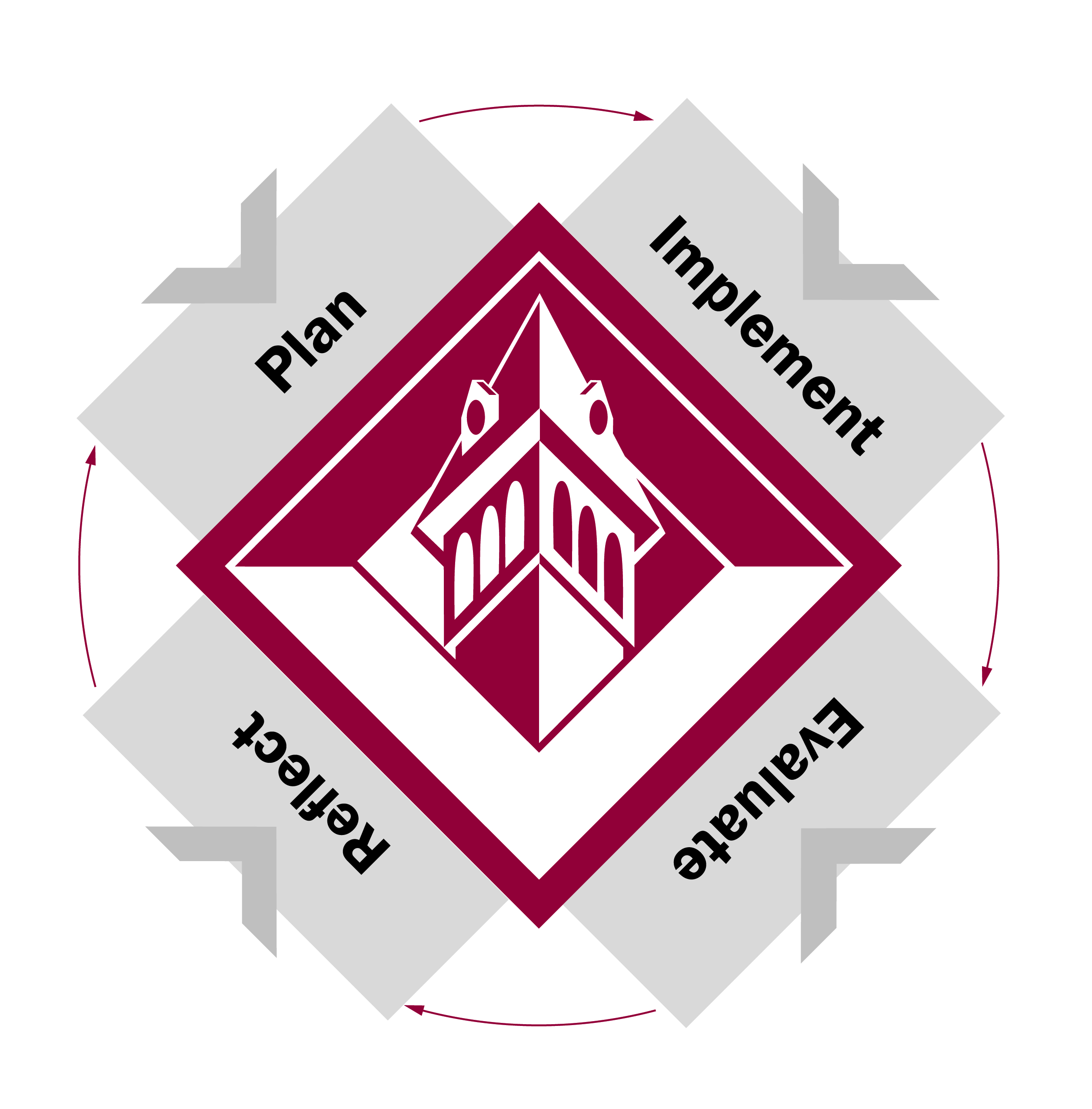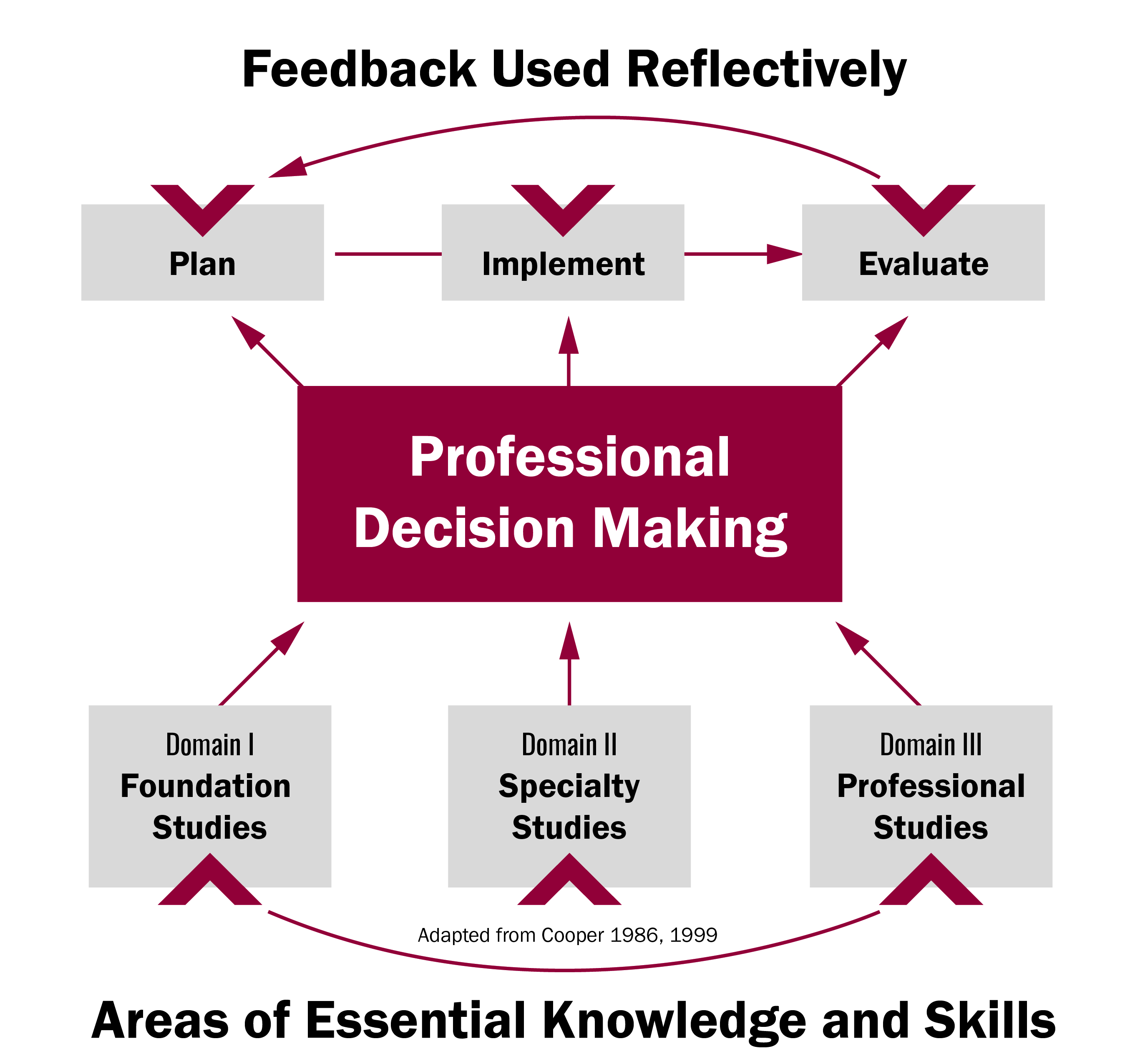Conceptual Framework

VCSU Education students are expected to understand the conceptual framework that underlies pre-service and in-service program design. The broad goals of the teacher preparation and advanced programs at Valley City State University are to prepare entry-level teachers and advanced in-service teachers and school personnel who:
- are capable of teaching and guiding students of varying backgrounds, strengths, and needs;
- are competent decision makers;
- are skilled in planning, implementing, and evaluating learning experience for students;
- view decision making as a reflective process;
- understand and are committed to the moral dimensions of teaching;
- select and apply technology appropriately; and
- accept the view that professional growth and development is an on-going, never-ending process.
Knowledge-based Decision Making

The four major elements of the conceptual framework are supported in both undergraduate and graduate assessments, from course level to program evaluations surveys.
Planning
While planning, the teacher must make decisions regarding areas such as, goals and objectives, the degree of background building required, specific materials and methods to use. The planning of instruction is based upon knowledge of the subject matter, the students in the classroom, and the curriculum goals.
Implementation
The implementation function requires the teacher candidates to carry out the plans that have been made. During the actual teaching phase, numerous decisions need to be made, often quickly, as the teacher candidates respond to students’ reactions, comments, and instructional needs. Teacher candidates learn to value the development of their students’ critical thinking, problem-solving, and performance skills. At times, these skills require a variety of instructional strategies, questioning skills, and teacher flexibility to come to the surface. As a result, modification of prepared plans becomes the rule rather than the exception.
Evaluation
During the evaluation phase of decision making the teacher needs to determine the degree to which the instructional objectives were attained. Teachers must apply ongoing formal and informal assessment strategies to identify what and to whom re-teaching is required, and to what level of understanding the students have learned the skill or content from the experience. Evaluation information must be recorded to identify student strengths and monitor progressive student growth.
Reflection
Planning, implementation, and evaluation are done by using feedback in a reflective manner. During the entire process, it is essential the decision-maker realizes that professional growth and development is continuous.
Teacher Education Domains
The teacher education program has three major domains. The overall goal of each domain is as follows:
Domain I: General Education: To help teacher candidates acquire a broadly-based liberal arts education needed to function as informed members of our society and within the teaching profession.
Domain II: Specialty Studies: To prepare teacher candidates who possess strong backgrounds within each subject area they will teach.
Domain III: Professional Studies: To prepare teacher candidates to function in a variety of educational settings and with students of diverse backgrounds, abilities, and needs.
Program Learning Outcomes
Content majors will demonstrate learning outcomes defined by their course of study and the teacher education learning outcomes:
- Teacher candidates apply knowledge and skills to plan a unit that meets the needs of students in a P-12 classroom.
- Teacher candidates apply knowledge and skills to implement a unit that meets the needs of students in a P-12 classroom.
- Teacher candidates apply knowledge and skills to evaluate student learning during a unit taught to students in a P-12 classroom.
- Teacher candidates apply knowledge and skills to reflect on student learning and their own practice as a teacher during a unit of teaching students in a P-12 classroom.